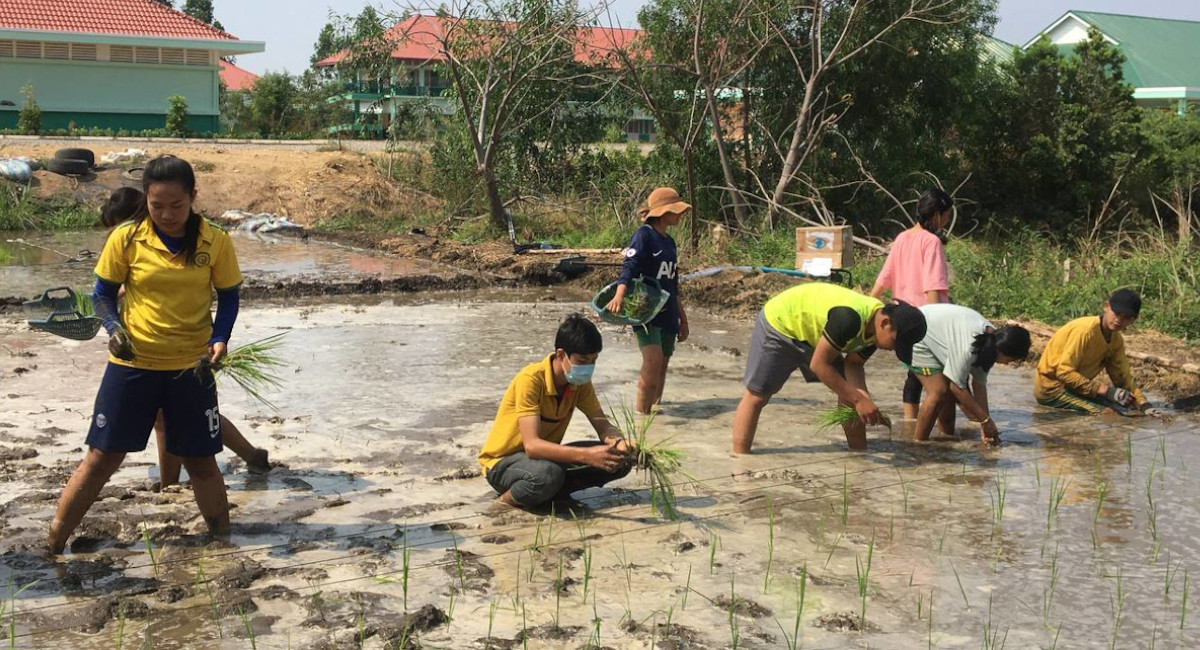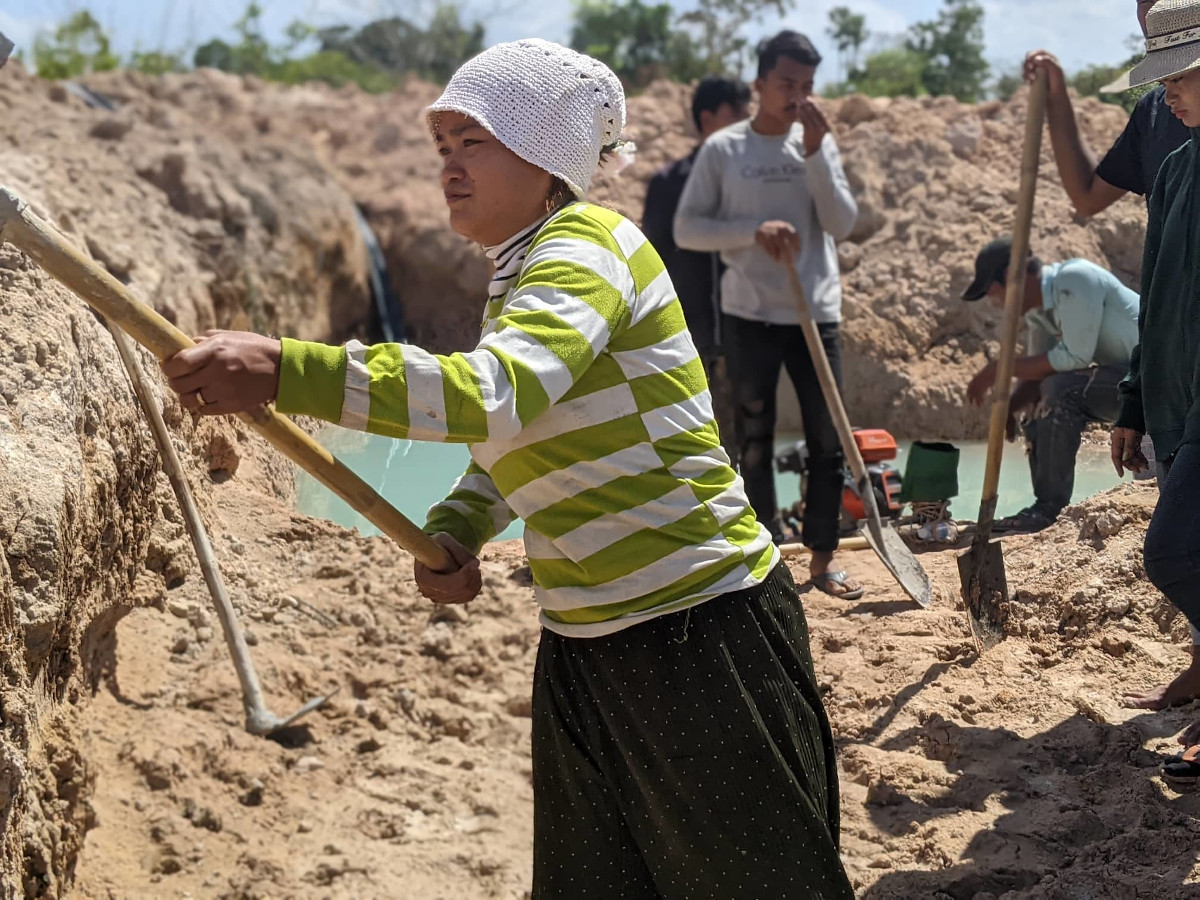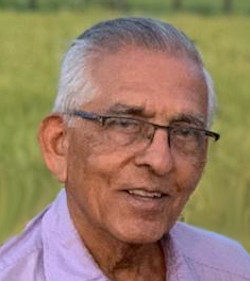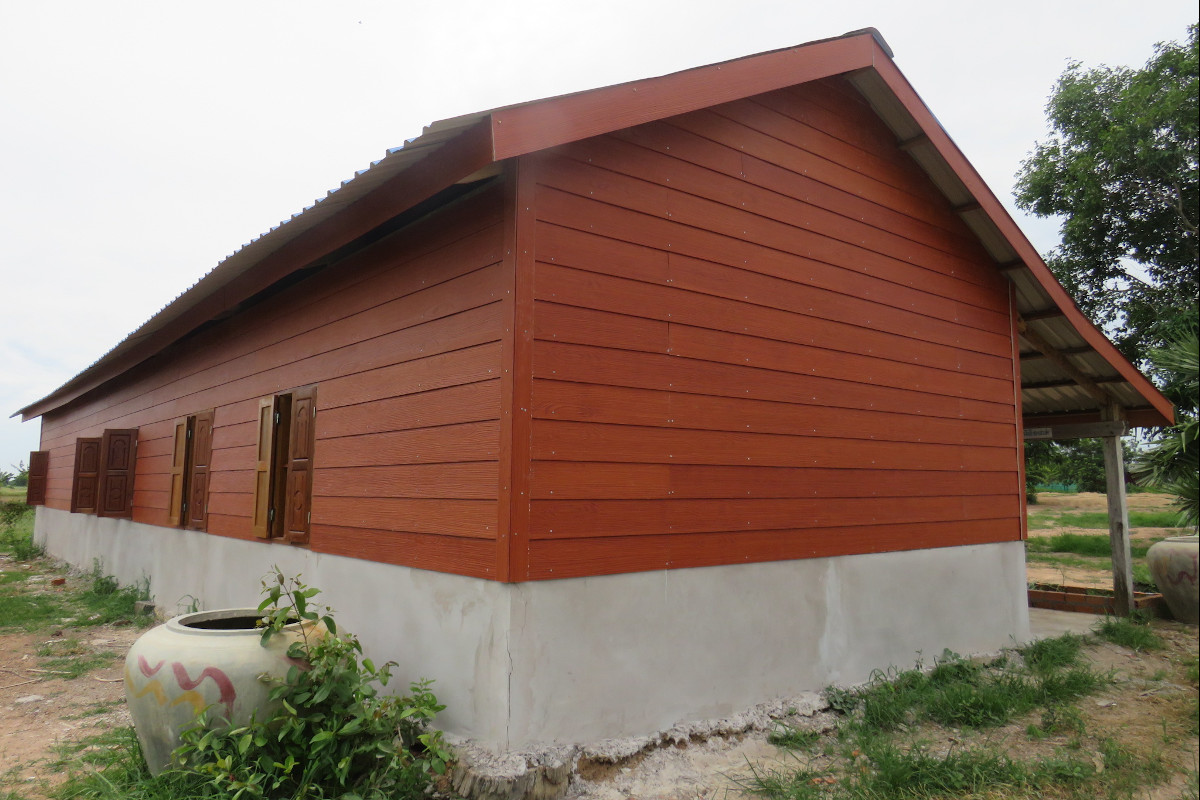
The world is facing a “cannonball” experience caused by Covid-19. The event of 20 February involving a violation of quarantine protocols caused the virus to spread in Cambodia and create some panic. In a little over four months the number of cases, which was only 522 for over a year, is now over 61,000 and nearly 825 deaths.
Programmes involving school children are facing major setbacks because of school closures. Schools can open in August or September depending on the situation, but that is a few months after the beginning of the rice planting season.
Nonetheless, at Xavier Jesuit School, seedlings were prepared for some students to practice the System of Rice Intensification (SRI). With this project, students will be able to compare the input cost per yield per hectare of SRI with traditional rice planting methods.
We are also reaching out to schools in distant rural areas through our Community Development Project and the Fe y Alegria project. One of them is Beng Kangaok School, which we helped to renovate. For this, the participation and contribution of the parents and the community were important. We provided the materials and food, while the community did the actual work for free and cooked the meals.
Parents and other community members stepped in for students who couldn’t come to the school for SRI. We hope the parents and their children can see the difference in yield, especially if they do not have to face a flood situation which their children faced last year.
Many of the projects we do are through the Centre for Research on Optimal Agricultural Practices. Last Christmas, unemployed youth and young adults with shovels dug ponds for which they were remunerated. They did the excavation up to about five metres after which we got an excavator.The Emergency relief programme for helping those affected by the crisis was implemented through the Self-Help-Groups we had formed. We reached a total of 256 farmer families in four provinces. The support given per farmer family consisted of vegetable seeds, rice seeds, natural fertilisers, and chickens. We could do this only because of the generous support of the Jesuit Missions of Germany, Switzerland, Austria, and Australia, as well as friends in Singapore and other countries.
In June 2020, we had a total of 250 farmers who adopted SRI on some of their fields. This year, while four of those farmers dropped out for various reasons, 166 new farmers have joined. Hence this year we will be having a total of 412 farmers for the 2021 planting season. The total area of their farms which will be used for SRI is about 124 hectares.

At the end of March this year, His Excellency, the German Ambassador, Christian Berger reached out to know the various projects that we are involved in, and has expressed his desire to visit some of our projects. He sees the great need of Cambodia for improving its agricultural products and in being able to export the same. He also sees the great need of the people who are faced with so many difficulties because of the pandemic.
Through Ambassador Berger we were able to connect with GIZ (Gesellschaft für Internationale Entwicklung) which has offices in Cambodia. With their support, we are now working on cash-for-work and home garden projects for our communities that have been badly affected by Covid-19. While we support them, they also do their part by participating in the work involved.
 Noel Oliver is a Jesuit brother from India. He has served in Cambodia for nine years from 1990-1992, 2003, 2004, and 2015 until the present, where he is currently Mission secretary.
Noel Oliver is a Jesuit brother from India. He has served in Cambodia for nine years from 1990-1992, 2003, 2004, and 2015 until the present, where he is currently Mission secretary.



